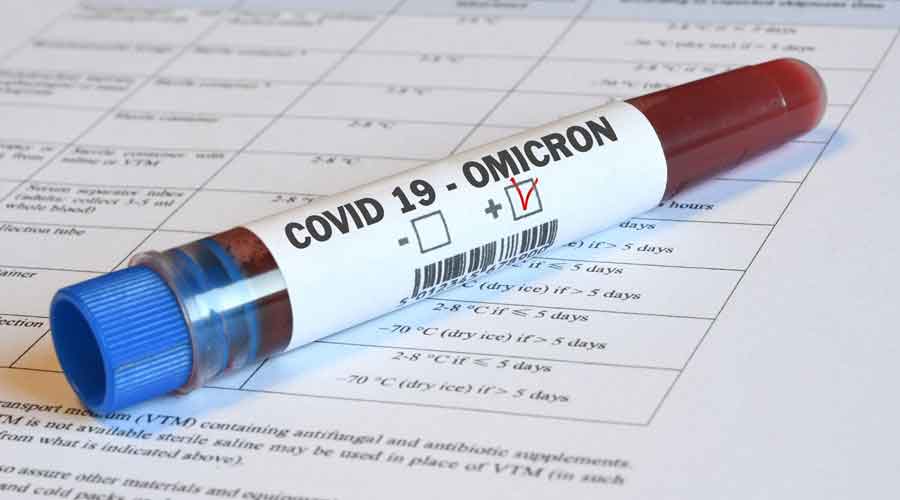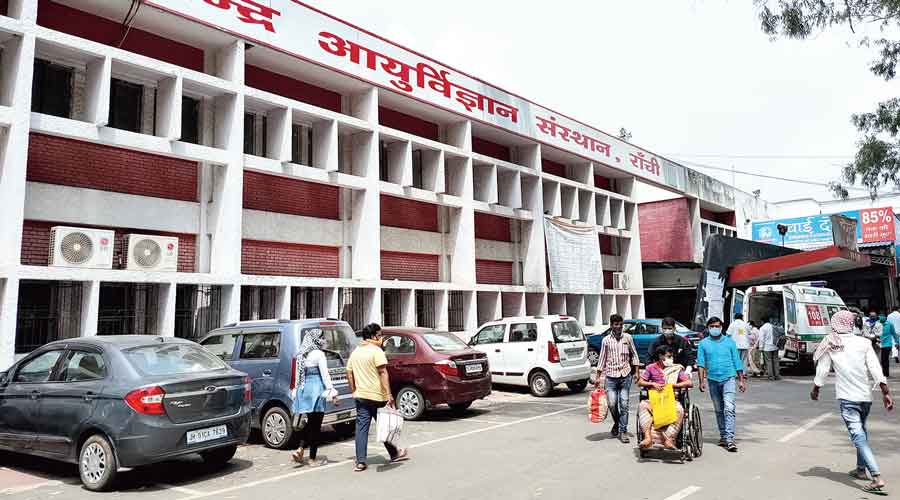The Bengal health department has dropped the monoclonal antibody therapy and the anti-viral drug molnupiravir from its Covid treatment guideline.
The monoclonal antibody cocktails are the most sought-after drugs among Covid patients across Calcutta and the demand has been soaring, stoking fears of a shortage. The cocktail’s current maximum retail price per dose is Rs 59,750.
The two can be brought back to the treatment protocol if future data support their use, said Abhijit Chowdhury, a public health expert and a member of the state government’s Covid task force.
He said that withdrawal of the two drugs did not mean that doctors could not prescribe these at all.
“Guidelines are only meant to guide. The guideline withdrew the two drugs because there is no hard data to suggest their efficacy. The guidelines can be revised again if data show that they are effective in giving protection,” Chowdhury said.
The health department had issued a guideline on December 31 where both the antibody therapy and the anti-viral drug were recommended for Covid patients in hospitals, but not in critical care units, and those in home isolation.
On Tuesday, Ajay Chakraborty, Bengal’s director of health services, said the state would wait for guidelines from the Union health ministry before again recommending the two in its treatment protocol.
“The government of India has not yet given any protocol. We have to wait for their new guidelines. We will withhold these new drugs till the national guidelines give a clear direction,” Chakraborty said.
A member of the state health department’s expert group that recommended the withdrawal said on Tuesday evening that the monoclonal antibody therapy did not work against the omicron variant. “It is well known by now that the antibody therapy does not work against the omicron variant. There is no point in administering it if it fails to give any protection. Why expose a patient to a medicine that will not work?” said the member.
The December 31 protocol did mention that the therapy does not work against omicron.
“In discussions with us, the Union health ministry told us that they would like to wait for a few more days and see some more genome sequencing reports to know which strain is more prevalent in India, the omicron variant or the delta variant,” said the member.
The member said they would also wait for the Union government’s guidelines before including molnupiravir in the treatment protocol.
Before the Covid cases started spiralling from December 27, the cocktail drugs were in demand but not as much as it has been in the past three days.
The monoclonal antibody therapy is used in patients with mild symptoms to prevent progression into severe disease. The therapy should not be administered to hospitalised patients who would have already progressed to the moderate or severe level, said Chandramouli Bhattacharya, an infectious diseases specialist with Peerless Hospital.
“I have already stopped administering monoclonal antibody therapy to my patients. There is enough indication to say it does not work against omicron. In the US and the UK, it is already being stopped,” he said.
But Bhattacharya said he did not support the state health department’s decision to withdraw molnupiravir in its entirety.
“Molnupiravir is known to reduce 30 per cent probability of progression to severe disease in case of the delta variant. What could have gone against it is that it has not been tested against the omicron variant. But scientifically and logically speaking, it should work against the omicron variant also,” he said.











